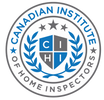Seven Questions with Chris B.
Q: How does your industry background transfer to the home inspections training industry?
My name is Christopher Bates. I am a Red Seal Journeyperson who started working as a carpenter when I was 19 years old. I have experience in all aspects of carpentry, including residential construction and repair. I have worked in multiple areas of the building industry, such as framing, finishing, and concrete work. Additionally, I have extensive experience as a trades instructor, which I started fulltime in 2011, teaching all levels of apprentices up to the final Interprovincial Examination. I also hold three certifications as a construction safety professional, which allows me to incorporate an influential safety culture into my teaching.
Q: What made you want to get involved with the Canadian Institute of Home Inspectors?
I am a passionate instructor who gets a great deal of satisfaction from teaching adults. I enjoy taking on new challenges, and I am interested in teaching in a different capacity and expanding my experience as an instructor. I have instructed courses in safety, scaffolding, and carpentry. I hold an Advanced Faculty Certificate from Saskatchewan Polytechnic and will have completed my Bachelor’s Degree in Adult Education with the University of the Fraser Valley by June 2020. I feel that experience teaching in various capacities allows me a greater understanding of adult learners and the contexts in which successful instruction occurs.
Q: What are the challenges of putting together a national home inspector training program such as the one created by the Canadian Institute of Home Inspectors?
The inspection of buildings can require knowledge of various types of construction and structures. The building industry is always evolving and changing, including NBCC minimum standards. The program must address the updates while still recognizing and understanding the merit of existing structures that have been grandfathered in and still offer viable shelter as a home. The presentation of previous building methods, such as balloon framing, can help an inspector to know what to expect and look for in older structures.
Q: What was the most enjoyable part for you with your contribution to the development of the Canadian Institute of Home Inspectors.
While working through the Canadian Institute of Home Inspectors materials, I enjoyed looking at the teaching role from another perspective other than that of a builder. It was interesting to review the modules from the viewpoint of an inspector rather than that of a carpenter. I valued the aspects of safety incorporated into the readings and the mentions of care not to cause unnecessary damage to the structure.
Q: If you could solve one trades related issue in Canada, what would it be?
One of the changes I would like to see in the building industry is; I would appreciate seeing more sustainable construction implemented in Canada. I have recently completed a green building course design that I plan to propose to a local college. Hopefully, it will get developed and implemented to allow builders more knowledge in building sustainability and energy efficiency. I believe that education can lead to positive change, and the availability of training in this area is vital to better practices getting implemented in construction. Sustainability must include not just the efficient operation of a building but also look at factors such as longevity, environmental impact, and energy embodiment of materials.
Q: What do you feel makes an effective training program for home inspections?
I think that information regarding current and previous practices can lead the inspector towards understanding what to look for during an inspection. Furthermore, the knowledge of what signs to look for that may indicate a problem are vital to the inspector’s training to ensure they may inform clients of potential issues in a building. I found the Canadian Institute of Home Inspectors manuals presents the material in a comprehensive and easy to understand format. I appreciate the summary that reviews the key points to highlight the critical sections of the readings to the learners. This course will build a solid foundation for a student to start a career as a home inspector.
Q: Do you believe that the material written in the Canadian Institute of Home Inspectors is done in such a way that while comprehensive, it is not restrictive to an individual with limited trades experience?
In my opinion, the material presented is thorough enough to provide the appropriate information but still offered in a format that is not restrictive to an individual with limited trades experience.

